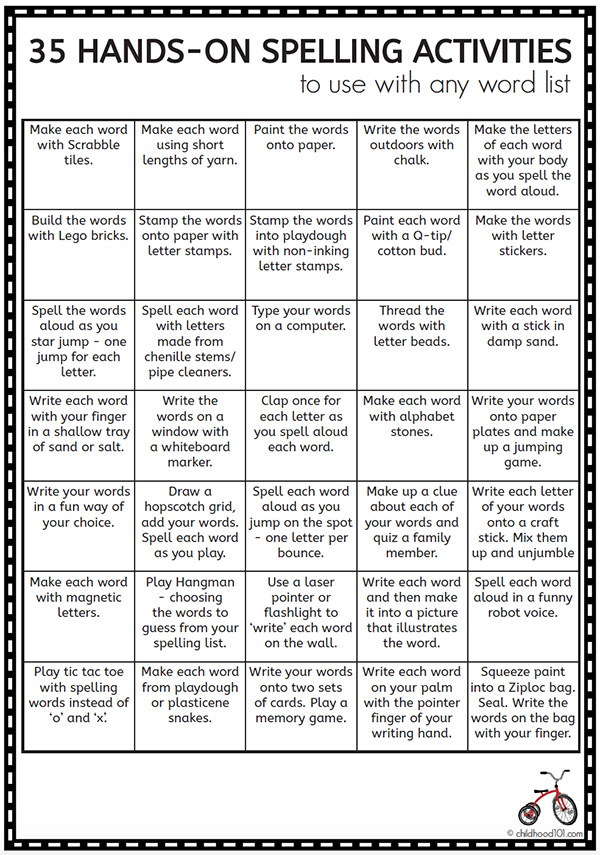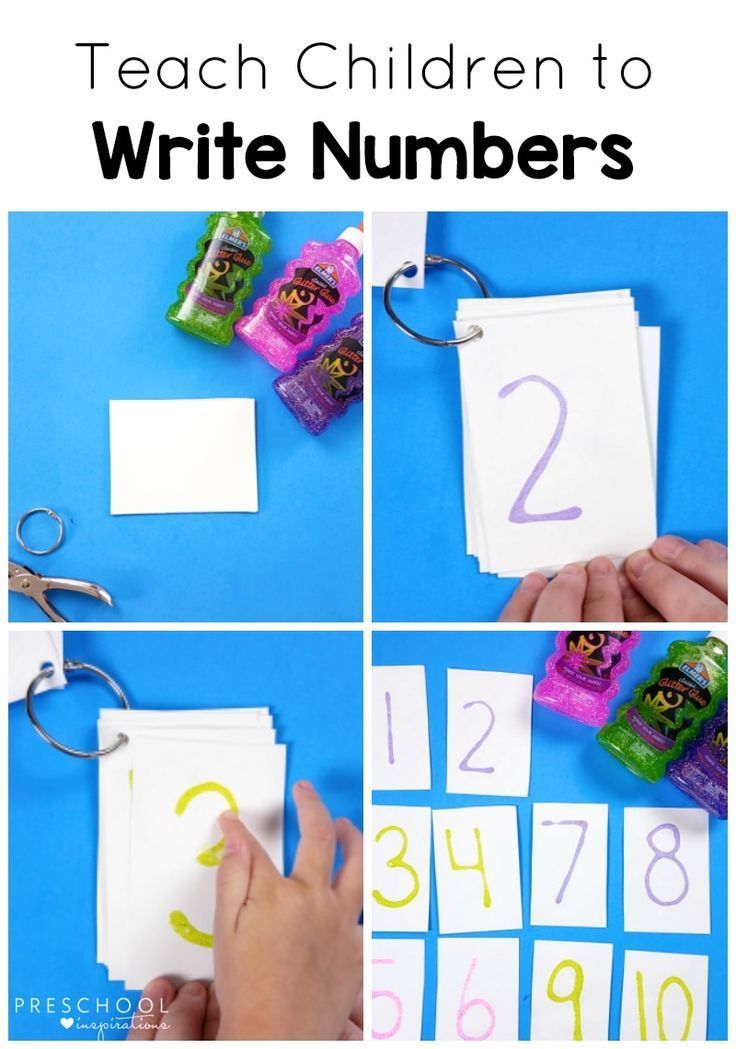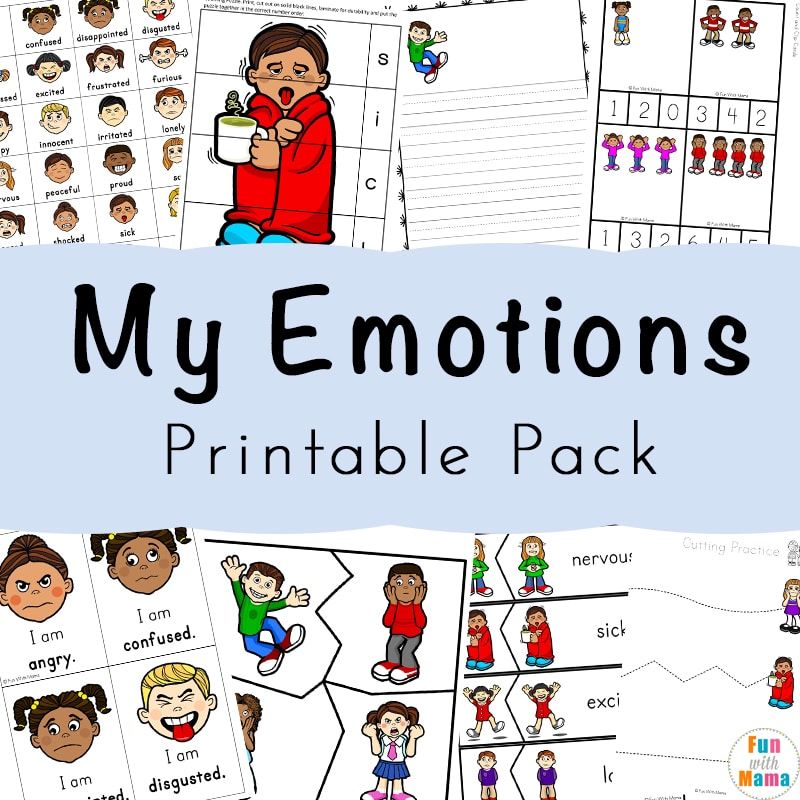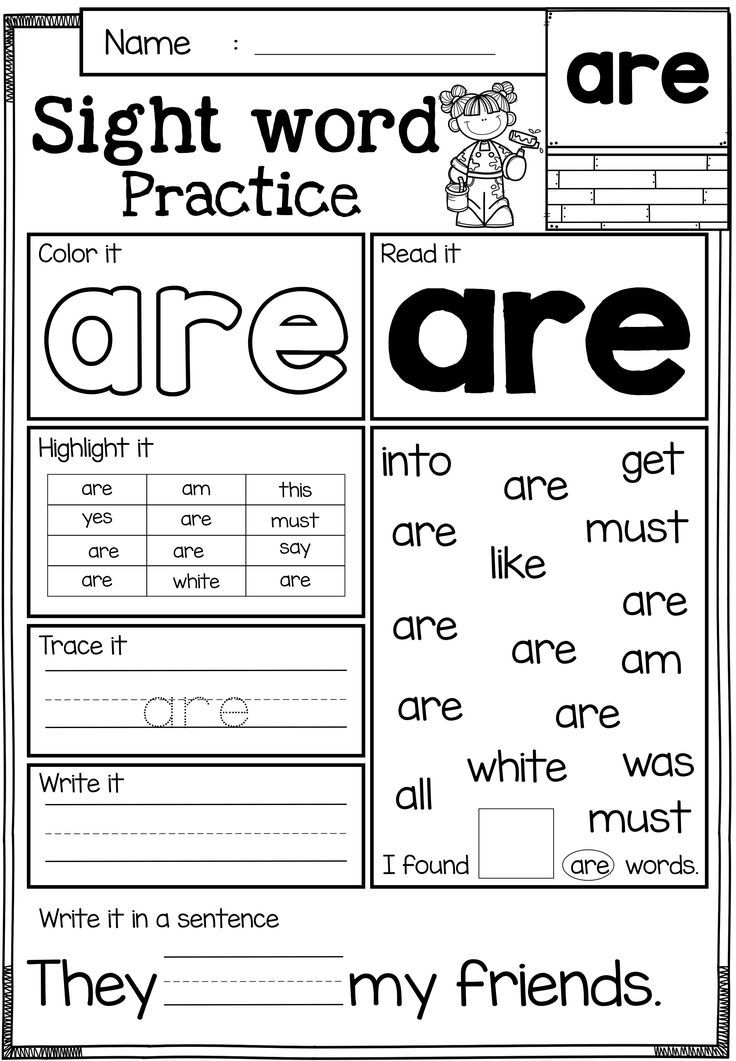Long vowels silent e
Long Vowel - Silent e Lesson Plan
Objectives:
- Students will recognize and pronounce words that follow the c-v-c-e and v-c-e rule where the first vowel is a long vowel and the final e is silent.
- Students will be able to spell and write simple long vowel words with c-v-c-e and v-c-e spelling patterns.
About the Concept:
There are several regular long vowel spelling patterns in the English language. The c-v-c-e pattern (consonant-vowel-consonant-final e) is a long vowel spelling pattern which occurs quite frequently in early reading and spelling. Basically, the phonics rule for this pattern states that when a vowel and a final
e are separated by a single consonant, the first vowel is long and the final e is silent. Some words that follow this rule are cake, scene, kite, hope, and rude. The c-v-c-e pattern occurs most frequently when the long vowel is a, i, and o and less frequently when the first vowel is e or u. The song Silent e (Sing Your Way Through Phonics Volume 1) teaches children how the vowel sound can change from a short vowel sound to a long vowel sound when a silent e is added to the end of a word. For example the short i in hid changes to a long i in hide, the short o in hop changes to the long o in hope, the short u in cut changes to the long u in cute, and the short a in cap changes to the long a in cape. By continually alternating between the rule and examples of the rule, the song Silent e helps students apply the long vowel -silent e rule in their reading and writing.
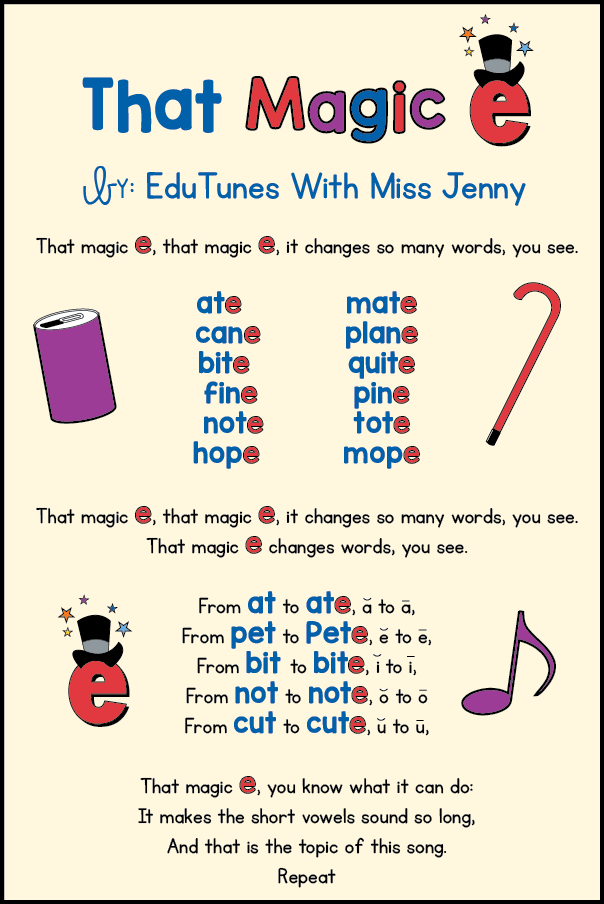 Other long vowel spelling patterns are covered in the Sing Your Way Through Phonics Vol. 2 song, Spelling Choices. Be sure to read the “Extensions” section below for additional silent e activities and for additional words with c-v-c-e patterns.
Other long vowel spelling patterns are covered in the Sing Your Way Through Phonics Vol. 2 song, Spelling Choices. Be sure to read the “Extensions” section below for additional silent e activities and for additional words with c-v-c-e patterns.
Materials:
- Sing Your Way Through Phonics Volume 1 CD, Tracks 17 and 18 (Listen to audio sample)
- Sing Your Way Through Phonics Volume 1 Mini-Charts (pp. 74-85)
- Optional: Flip Chart, markers, sticky notes
- Optional: card stock, markers, index cards
Note: If you do not have the CD or Mini-Charts, you can still teach this long vowel - silent e spelling pattern lesson plan using the folk tune listed on the Silent e Song Lyrics page. You can create your own mini-charts using the words in bold print letters in each verse of the Song Lyrics.
Find out more about Sing Your Way Through Phonics products.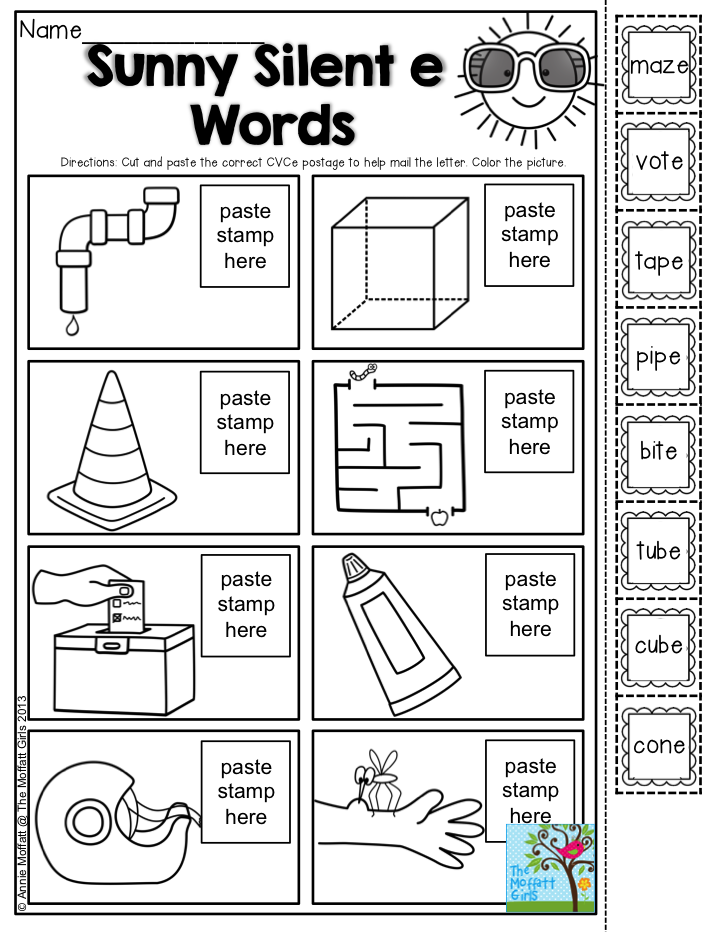
Order our cost-saving Volume 1 Combo online.
Procedure:
- Say, “Today, we are going to learn what happens when we put the letter e on the end of a short vowel word. Point to Sing Your Way Through Phonics Vol. 1 Mini-Chart p. 74 and say, "What is the first word on this page?" (rid) "How does the vowel sound in the word rid?" (/ĭ/) "Is the vowel in the word rid long or short?" (short) "How does the word on the bottom look different?" (It has an e on the end.) "When you add a final e to the word rid, it becomes ride. Is the vowel in the word ride long or short?" (long) How does the vowel sound in the word ride? (/ī/) Point to Mini-Chart p. 75 and say, "What is the first word on this page? (hid
) How does the vowel sound in the word hid? (/ĭ/) Is the vowel in the word hid long or short? (short) How does the word on the bottom look different? (It has an e on the end.
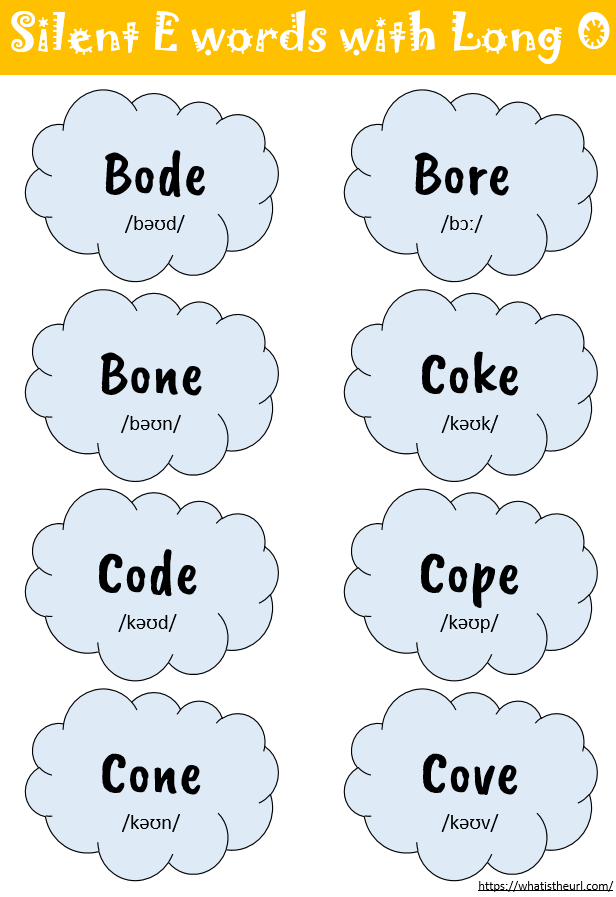 ) When you add a final e to the word hid, it becomes hide. Is the vowel in the word hide long or short? (long) How does the vowel in the word hide sound? (/ī/)
) When you add a final e to the word hid, it becomes hide. Is the vowel in the word hide long or short? (long) How does the vowel in the word hide sound? (/ī/) - Point to Mini-Chart p. 76 and say, "What is the first word on this page?" (rod) "How does the vowel sound in the word rod?" (/ŏ/) "Is the vowel in the word rod long or short?" (short) "When you add a final e to the word rod, it becomes rode. Is the vowel in the word rode long or short?" (long) How does the vowel sound in the word rode? (/ō/) Point to Mini-Chart p. 75 and say, "What is the first word on this page? (hop) How does the vowel sound in the word hop? (/ŏ/) Is the vowel in the word hop long or short? (short) When you add a final e to the word hop, it becomes hope.
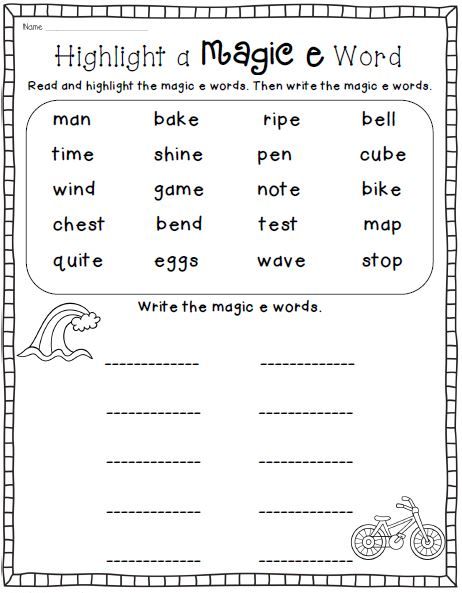 Is the vowel in the word hope long or short? (long) How does the vowel in the word hope sound? (/o/)
Is the vowel in the word hope long or short? (long) How does the vowel in the word hope sound? (/o/) - Ask, "So what happens to the vowel when we put a final e on the end of a short vowel word?" (The short vowel becomes long and the e is silent.) Practice reading and saying the vowel sounds in the words on Mini-Chart pp. 78-85: cut /ŭ/, cute /ū/, hug /ŭ/, huge /ū/ [Note that the letter g changes its sound, too.], cap /ă/, cape /ā/, tap /ă/, tape /ā/, pin /ĭ/, pine /ī/, fin /ĭ/, fine /ī/, pan /ă/, pane /ā/, can /ă/, cane /ā/.
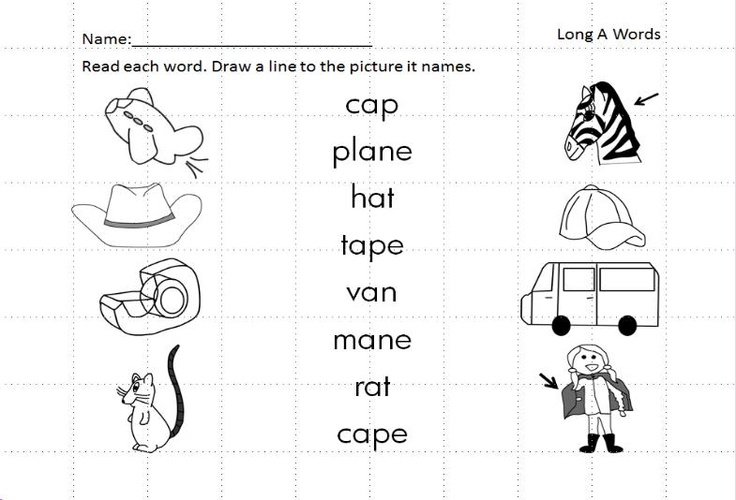
- Play Silent e (Sing Your Way Through Phonics Vol. 1 CD, Track 17), pointing to the Mini-Chart words and asking the children to join in the song as soon as they think they know the words. Joining in the song will be easy because the format remains the same for every verse. Example: "How do you change rid to ride? Silent e. How do you change hid to hide? Silent e. How do you change rid to ride? How do you change hid to hide? End the word with silent e."
- Say, "Notice that this is an question-and-answer song." Divide the class into two groups. Play CD track 17 again, alternating questions and answers between group 1 and group 2 as follows: (Group 1) How do you change rid to ride? (Group 2) Silent e.
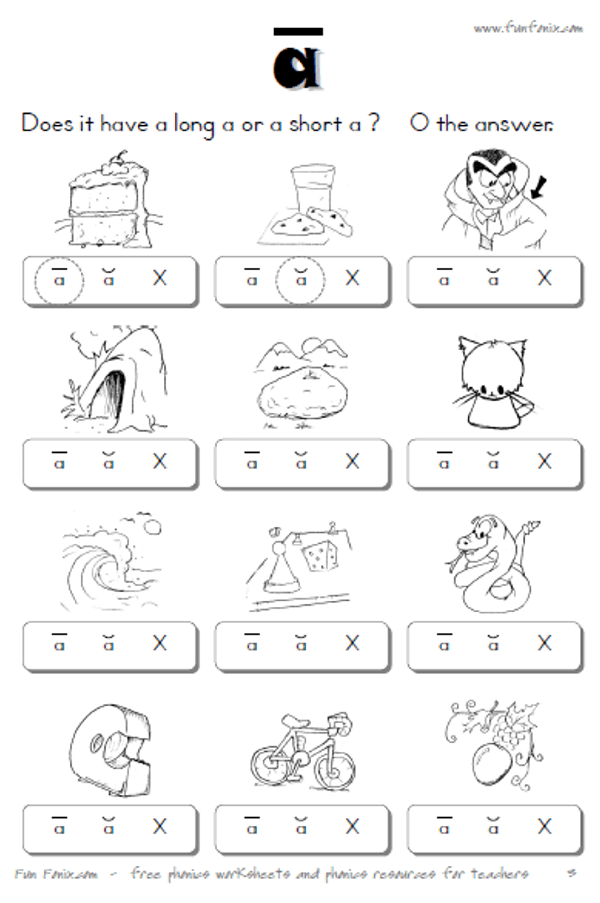 (Group 1) How do you change hid to hide?, (Group 2) Silent e. (Group 1) How do you change rid to ride? How do you change hid to hide? (Group 2) End the word with silent e. [Continue in this manner until the song is complete.]
(Group 1) How do you change hid to hide?, (Group 2) Silent e. (Group 1) How do you change rid to ride? How do you change hid to hide? (Group 2) End the word with silent e. [Continue in this manner until the song is complete.] - Play the CD again, and ask Group 1 to sing the part that Group 2 sang and vice versa.
- Review the Long Vowel - Silent e rule aloud together. "When e is added to a short vowel word, the short vowel becomes long and the final e is silent.
Follow-up:
- Practice singing Silent e daily for a week. Then try singing the song without hearing the words, using the instrumental track (Track 18). Allow different students to point to the Mini-Charts words while singing.
- Help students create other sets of c-v-c-e or c-c-v-c-e words for the song.
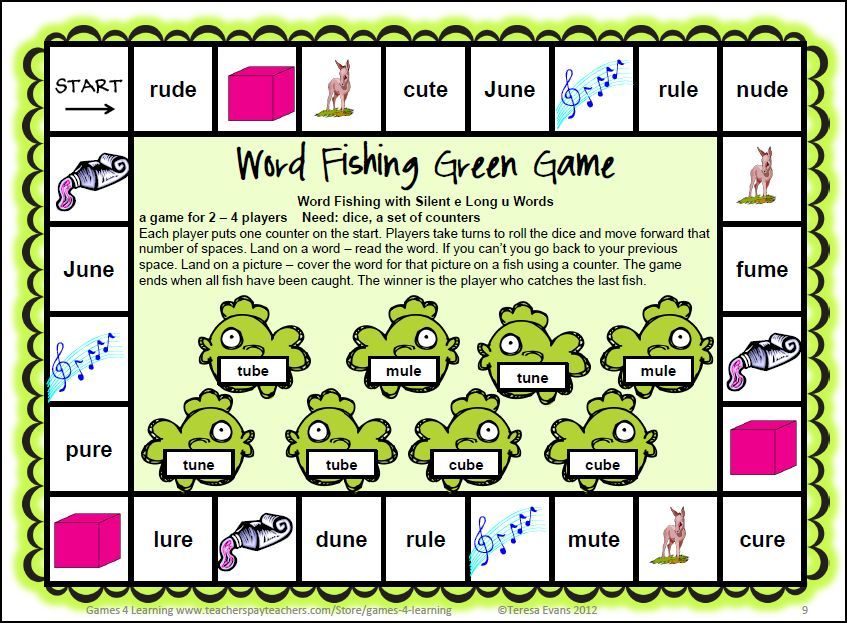 Make 8 copies of Mini-Chart Template B on p.96 and allow students write in the new sets of words. Examples: sal/sale, pal/pale, quit/quite, bit/bite, not/note, tot/tote, tub/tube, cub/cube, slid/slide, bid/bide, shin/shine, spin/spine. Place these pages back-to-back in page protectors in a 3-ring binder. Then sing the song with the instrumental version (Track 18).
Make 8 copies of Mini-Chart Template B on p.96 and allow students write in the new sets of words. Examples: sal/sale, pal/pale, quit/quite, bit/bite, not/note, tot/tote, tub/tube, cub/cube, slid/slide, bid/bide, shin/shine, spin/spine. Place these pages back-to-back in page protectors in a 3-ring binder. Then sing the song with the instrumental version (Track 18). - Mark the original words and the alternate examples with symbols for short vowels, long vowels, and silent e.
Extensions:
- Introduce the Read-and-Sing Book, Silent E.
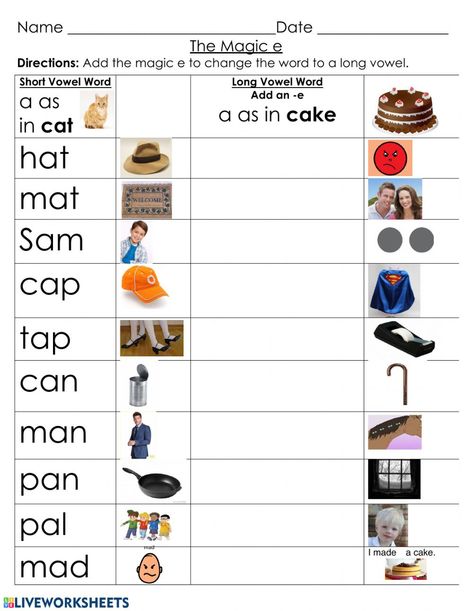 As readers sing along with the lively song set to the folktune Hinky Dinky Parlez-Vous, they can read the short vowel words and predict the long vowel words before they turn the page to verify their guesses. In this book, characters are in the business of painting signs. At first, only part of the word on the sign is visible. When the page is turned, the complete word is visible. The partial word has a short vowel sound which changes to a long vowel sound when whole word is painted. Children can learn about additional long vowel spelling patterns in the Read-and-Sing book, Talking and Walking. Keep a few copies of the book at a literacy center equipped with headsets so that students can gain practice in listening, singing, and reading long vowel - silent e words.
As readers sing along with the lively song set to the folktune Hinky Dinky Parlez-Vous, they can read the short vowel words and predict the long vowel words before they turn the page to verify their guesses. In this book, characters are in the business of painting signs. At first, only part of the word on the sign is visible. When the page is turned, the complete word is visible. The partial word has a short vowel sound which changes to a long vowel sound when whole word is painted. Children can learn about additional long vowel spelling patterns in the Read-and-Sing book, Talking and Walking. Keep a few copies of the book at a literacy center equipped with headsets so that students can gain practice in listening, singing, and reading long vowel - silent e words. - Create a silent e flip chart by covering the final e in each word with a sticky note. Children can read the word without the final e, then flip the sticky note and read the word with the final e.
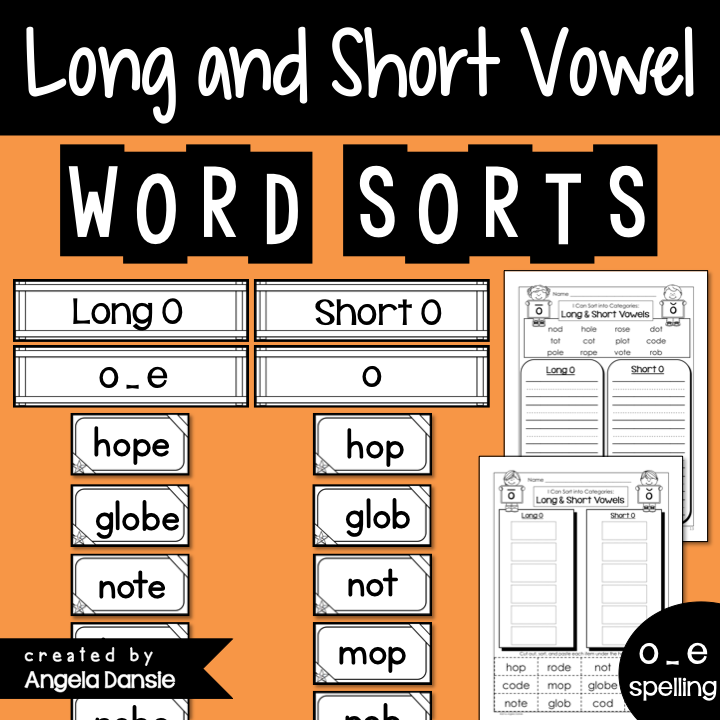
- Play a sorting game by placing long vowel word cards and short vowel word cards in the appropriate pile. Try selecting words with a theme like animals, foods, adjectives, or names.
Evaluation:
- Students read all the words on Mini-Charts pp.74-85 without assistance.
- Students correctly pronounce vowel patterns e_e, a_e, i_e, o_e, and u_e.
Order our cost-saving Sing Your Way Through Phonics Volume 1 Combo online ($33.95) containing the CD, Mini-Charts, Song Lyrics, and Teaching Suggestions — everything you need for this lesson! Or, print out an order form to mail/FAX to us.
Teaching Kids the Whole Truth (+ Downloads!)
by Marie Rippel
Today we’re going to bust another phonics myth. You have probably heard this one…
“Silent E makes the vowel say its name.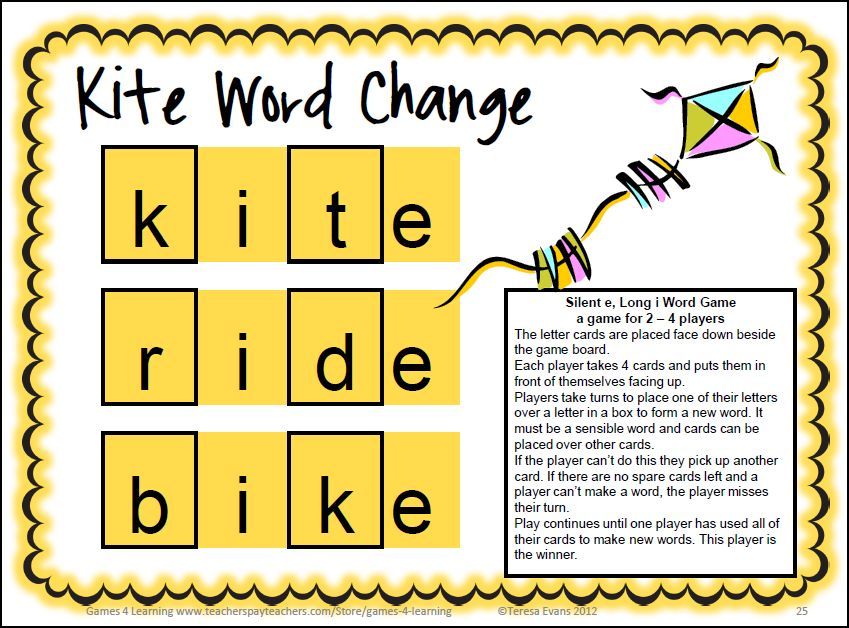 ”
”
And if you look at the following word pairs, that rule does appear to be true.
tap --> tape
fin --> fine
mad --> made
In each example, Silent E changes the short vowel into a long vowel (in other words, the vowel says its name). Dozens of popular phonics programs teach this, and it is one of the most common reading and spelling “rules” taught to beginning learners.
This would be a good rule if it were the whole truth.
The Truth about Silent E
But that’s where the problem arises: after kids learn this rule, they encounter hundreds of words that don’t fit into this easy pattern. They start to see words all around them, such as horse, love, and puddle, in which Silent E doesn’t make the preceding vowel long…and then they start to doubt what they are being taught.
Some students are naturally intuitive when it comes to language patterns, and they can fill in the gaps and move on. But many students take the “rule” at face value and think that the problem is with them—that they just can’t figure out English.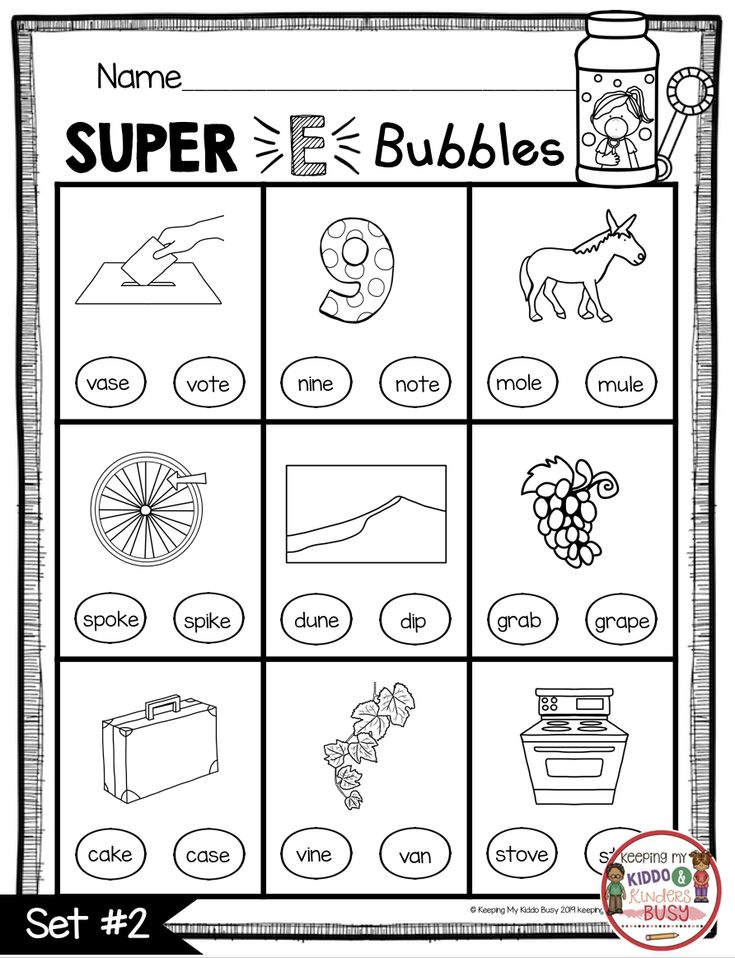
This situation is frustrating and unnecessary, because…
Silent E Has Many Jobs
The chart below shows seven jobs of Silent E, along with sample words.
Click to download and print this Silent E infographic!
Saying “Silent E makes the vowel say its own name” is like saying “dogs are black.”
Would your child believe you very long if you tried to convince him that all dogs are black? While it is true that some dogs are black, it is not true that all dogs are black. Dogs can be brown, white, sable, yellow, or mixed.
In a similar vein, not all Silent E’s do the same job. Sometimes they make the preceding vowel long, but they can also do six other jobs.
Teaching the Truth about Silent E
When students know the truth—the full story about Silent E and all of its jobs—they aren’t thrown off when they see Silent E at the end of a word. If it doesn’t make the preceding vowel long, there are other options to explain its existence. Students can trust their education, instead of being misled by a myth.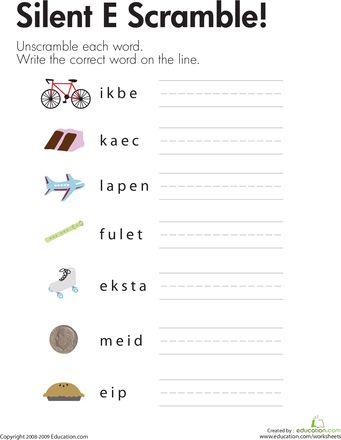
Knowing the truth also opens the door to some interesting word discussions. For example, did you know that Silent E can do two jobs in a single word? Check out the word race—Silent E makes the A long and makes the C soft. Other examples in which Silent E has two jobs include hive, mice, trace, page, and cage. That’s pretty neat!
How We Teach Silent E
In the All About Reading and All About Spelling programs, we teach all the jobs of Silent E. (In AAS, the jobs are numbered differently because we lumped some together in the “Handyman E” category.) We teach the jobs step by step, one lesson at a time, so students can master the concepts at their own pace.
Are you interested in seeing some sample lessons? Click to download!
Download “The First Job of Silent E”
All About Reading Level 2, Lesson 14 sample lesson
Download “Soft C and the Second Job of Silent E”
All About Reading Level 2, Lesson 39 sample lesson
Download “Pickle Syllables and the Fifth Job of Silent E”
All About Reading Level 3, Lesson 8 sample lesson
Were you ever taught the various jobs of Silent E?
Rules for reading in English
WAR
All dictatorships create external enemies and repression to sit on the throne forever.
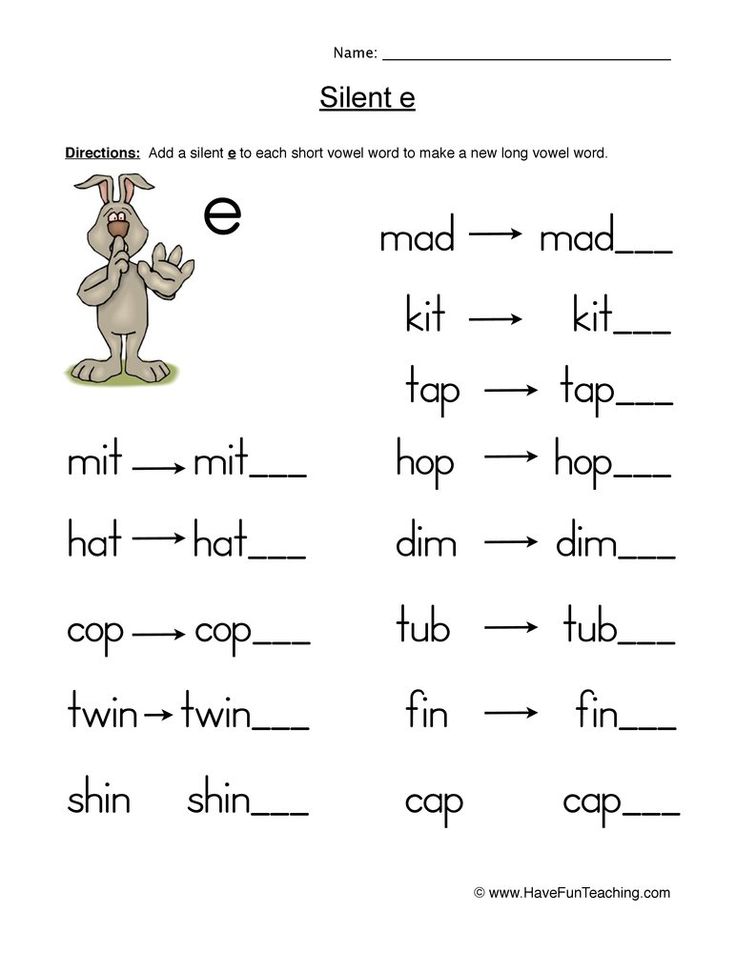
If you can't tell the truth from a clever lie, then think about laws, about freedom of speech, how often and where power has changed.
CNN News BBC News Telegram Wikipedia
The reading and pronunciation of some letters and letter combinations depends on their position in the word, the type of syllable and neighboring letters (more precisely, the sounds they represent). At first, such reading rules may seem difficult to remember, but with practice they will need to be referred to less and less. nine0003
Since the rules of reading in English can be difficult for beginners, it is always best to check new words by transcription and memorize the pronunciation by ear.
The pronunciation and designation of sounds of the English language is considered on the phonetics page.
Syllables in English
All English words, like Russian ones, can be divided into syllables.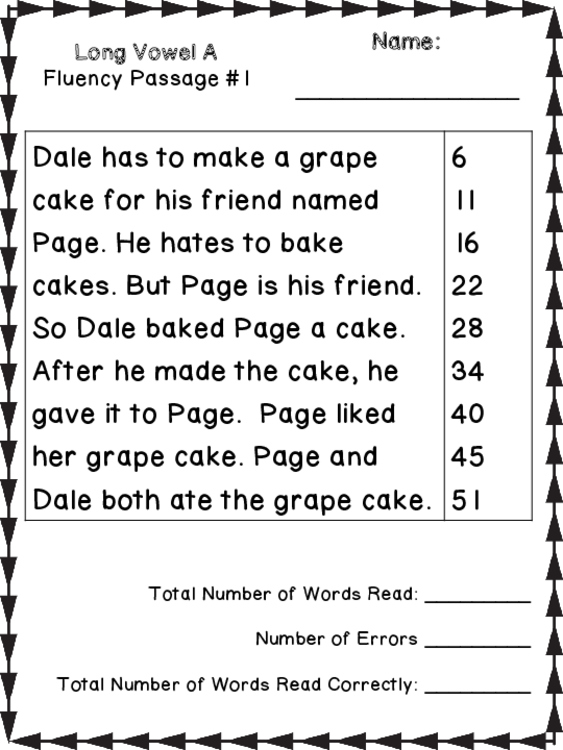 The syllable (syllable) is a sound or a combination of sounds that are pronounced together with one push of air. As a rule, the number of syllables corresponds to the number of vowels. Syllables are the building blocks of a word and affect the pronunciation of a word. nine0003
The syllable (syllable) is a sound or a combination of sounds that are pronounced together with one push of air. As a rule, the number of syllables corresponds to the number of vowels. Syllables are the building blocks of a word and affect the pronunciation of a word. nine0003
- cat (one syllable)
- take (one syllable)
- car-rot (two syllables)
- im-por-tant (three syllables)
- syl-la-ble (three syllables)
The main role in the formation of a syllable is played by vowels (vowels). In English, there are 6 letters that represent vowels: A E I O U and sometimes Y . However, there are many more actual vowels, and if diphthongs are taken into account, as well as vowel sounds of English dialects, their number may exceed 20.
When dividing a word into syllables, it is important to take into account the sounds, not the vowels, since a letter cannot always convey a certain sound.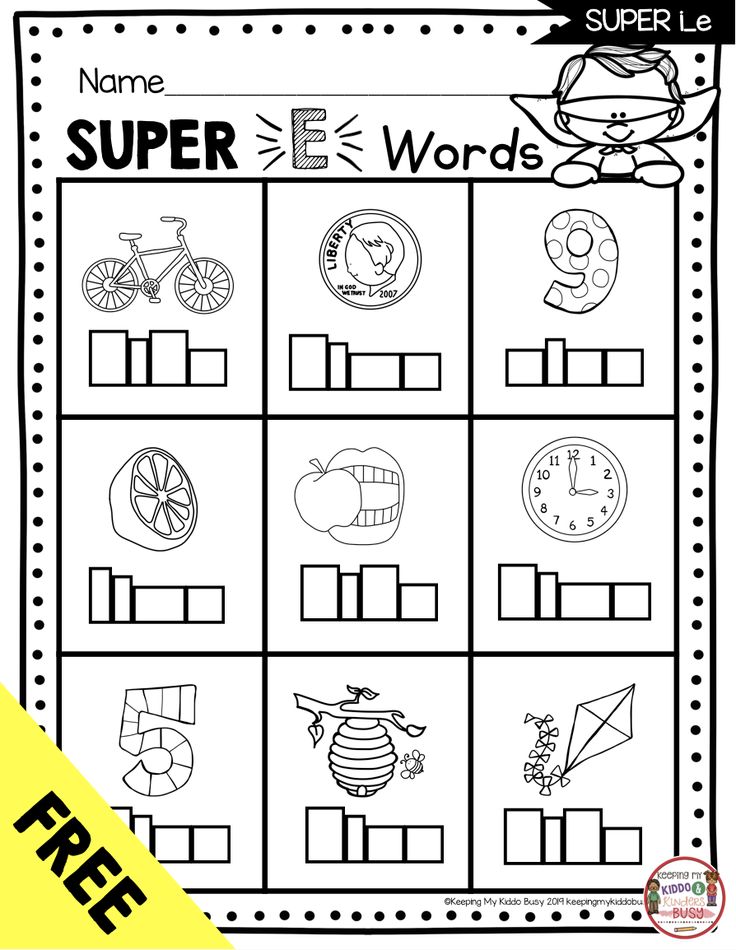
- take - two vowels, but one sound, so one syllable (final "e" is not pronounced)
- free - two vowels, but one sound and one syllable (two "e" are pronounced together in a long way)
- cheese - three vowels, but one sound and one syllable
Syllable types
Closed syllable (closed syllable) consists of one vowel and always ends in a consonant sound/sounds. A closed syllable does not necessarily begin with a consonant.
|
|
|
The open syllable (open syllable) has only one vowel at the end of the syllable.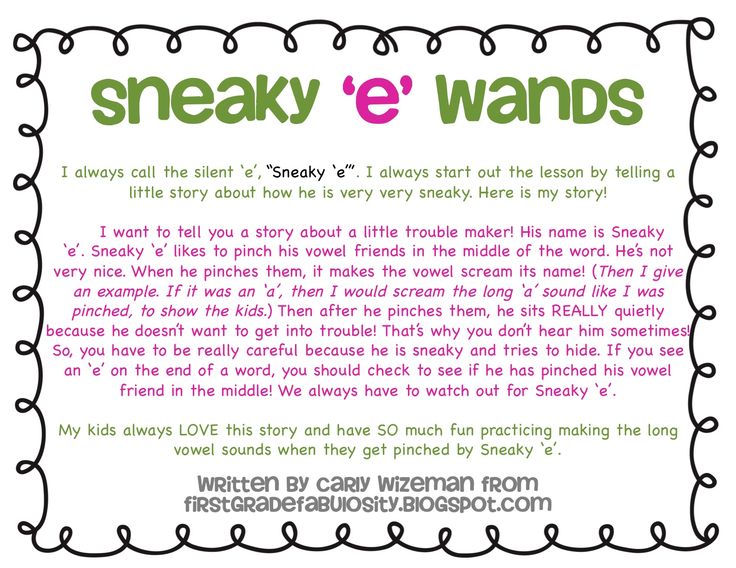 This group includes syllables that consist of only one vowel without consonants.
This group includes syllables that consist of only one vowel without consonants.
|
|
|
A syllable with a mute E (silent-e syllable) has one vowel and a mute E (not pronounced, but indicated in writing), which comes after a consonant at the end of a syllable. Despite the fact that two vowels are written in the letter, such words are considered monosyllabic and the first vowel is read as in an open syllable (as in the alphabet).
|
|
|
A vowel combination syllable has combinations of two or three vowels, or a combination of a vowel and a consonant, which together give a certain sound and sound together.
|
|
|
Vowel-9 syllables0022 R (vowel-r syllable) consist of one vowel (or combination of vowels) and the consonant R . This type also includes syllables consisting of a vowel and a consonant R with the dumb E .
|
|
|
A syllable with a combination of a consonant and LE (consonant-le syllable) is considered a separate syllable, despite the fact that it ends with a silent vowel E .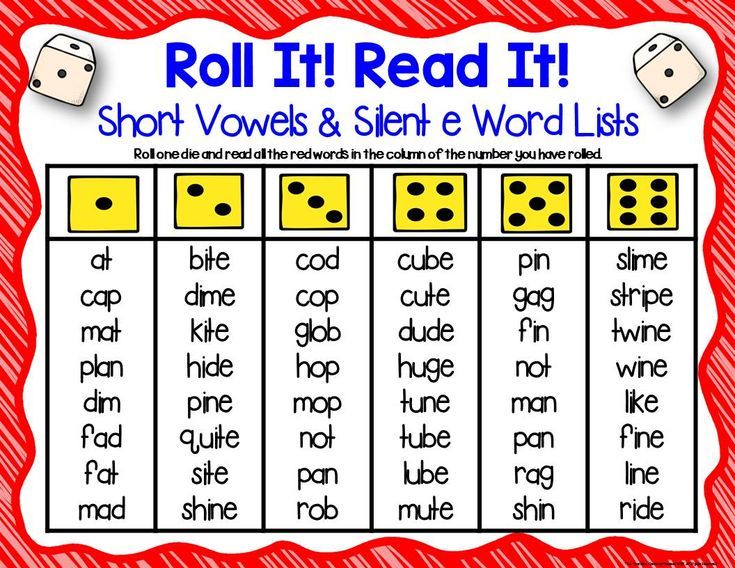 Such a combination is considered a syllable only when the combination LE is after another consonant: -ble , -cle , -dle , -fle , -tle , - gle . This syllable occurs in words consisting of two or more syllables.
Such a combination is considered a syllable only when the combination LE is after another consonant: -ble , -cle , -dle , -fle , -tle , - gle . This syllable occurs in words consisting of two or more syllables.
|
|
|
According to the number of syllables, English words are divided into one-syllable , two-syllable , three-syllable and so on. The number of syllables can affect intonation and stress in a word.
|
|
|
|
Also, syllables in English are stressed and unstressed .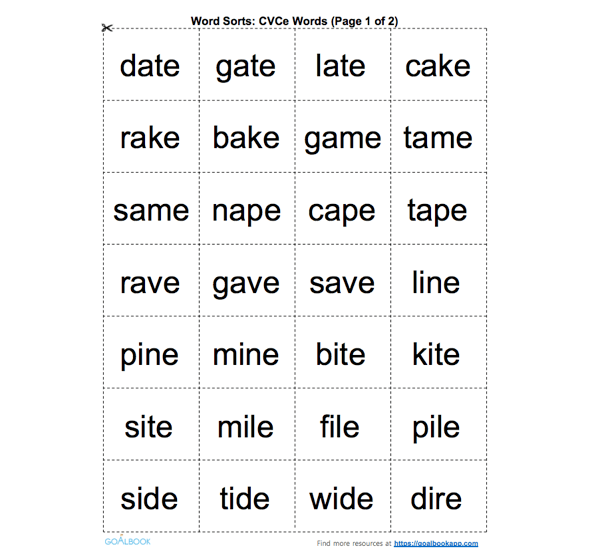 One word can have more than one stressed syllable.
One word can have more than one stressed syllable.
Stressed syllable (stressed syllable) - the stressed syllable is distinguished by intonation. nine0003
Unstressed syllable (unstressed syllable) - syllable without stress, pronounced shorter than stressed.
|
|
Sometimes stress on syllables can play meaningful role.
|
|
Rules for reading vowels
English vowels are not always pronounced the way they are called in the alphabet.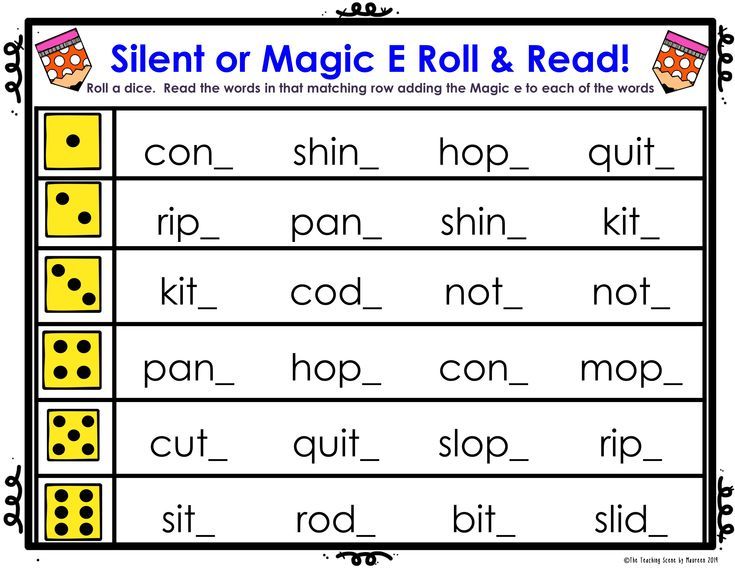 This is influenced by the position of the vowel itself in the word, that is, the type of syllable it forms. It should be noted that English words never end with the letter 9.0021 I and U .
This is influenced by the position of the vowel itself in the word, that is, the type of syllable it forms. It should be noted that English words never end with the letter 9.0021 I and U .
The letters A E I O U in an open syllable are in most cases read in accordance with their name in alphabetical order. In this position, they are pronounced as long vowels. It should be remembered that the final E , which comes after the consonant, is never pronounced (silent E ).
| A | [eɪ] |
|
| [ə] at the end of words |
| |
| E | [iː] |
|
| I | [aɪ] |
|
| O | [əu] |
|
| [u:] or [u] |
| |
| U | [juː] |
|
| Y | nine0083 [aɪ] in an open stressed syllable
| |
| [ɪ] in an unstressed syllable |
|
In closed syllable The letters A E I O U are mostly read as short vowels, but they sound different than in an open syllable.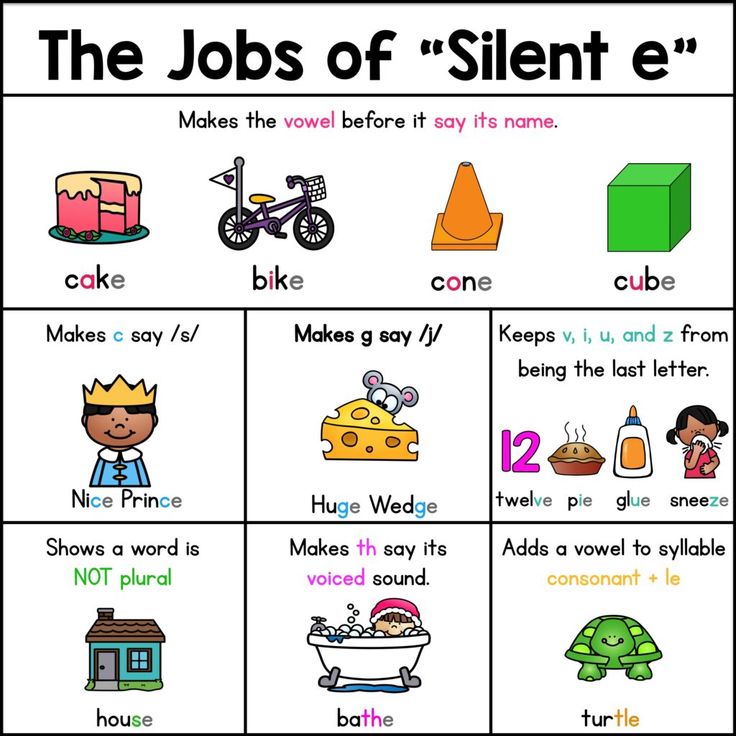
| A | [æ] |
|
| [ə] often in unstressed position |
| |
| [ɑː] often stressed |
| |
| [ɔː] before consonants l and w |
| |
| [ɔ] after w , wh , q |
| |
| E | [e] accented |
|
| [ə] or dropped before n |
| |
| [u:] or [ju] before w |
| |
| I | [ɪ] |
|
| [aɪ] before ld , nd , gn and gh |
| |
| exception: |
| |
| O | nine0083 [ɔ]
| |
| [əu] before ld and w |
| |
| [ʌ] stressed before th or n , m + other consonant |
| |
| [ə] or drops out in an unstressed syllable, often before n |
| |
| U | [ʌ] |
|
| [u] after b , f , p and before sh , l |
| |
| Y | [ɪ] |
|
The letters A E I O U before a consonant R not followed by another vowel are read as long vowels. In British English, in this case, the letter R is almost not pronounced, but in American English it can be pronounced.
| AR | [ɑː] |
|
| ER | [ɜː] |
|
| IR, UR | [ɜː] |
|
| YR | [ər] occurs only in one word |
|
| OR | [ɔː] stressed |
|
| [ə] in an unstressed syllable, often at the end of a word |
|
When a combination of a vowel and R is followed by another vowel, such as silent E at the end of a word, the reading of the vowels changes.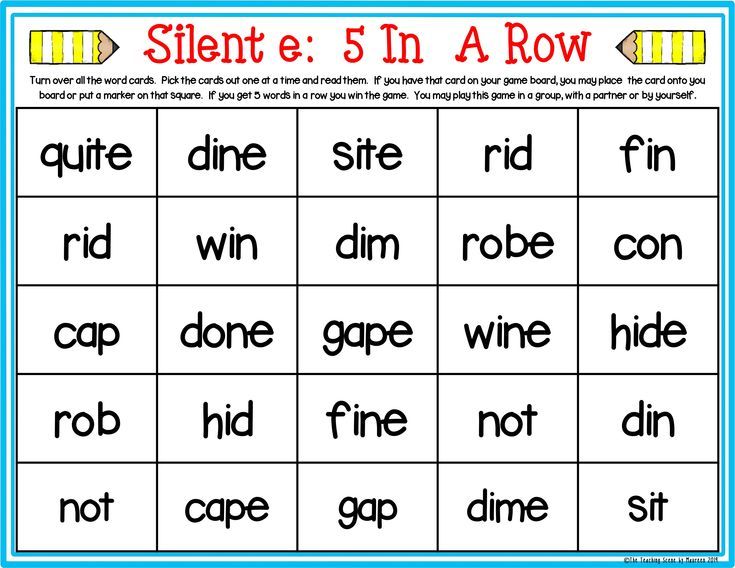 According to the norms of British English, the consonant R is not pronounced before the silent final E .
According to the norms of British English, the consonant R is not pronounced before the silent final E .
| A | [ɛə] |
|
| E | [ɪə] |
|
| [ɛə] |
| |
| [ɜː] (exception) |
| nine0133 |
| I, Y | [aɪə] or [aɪ] |
|
| O | [ɔː] |
|
| [uə] (except for the word bury [beri]) |
|
Letter combinations of vowels in English, if they belong to the same syllable, have their own reading rules, which may differ from reading vowels separately.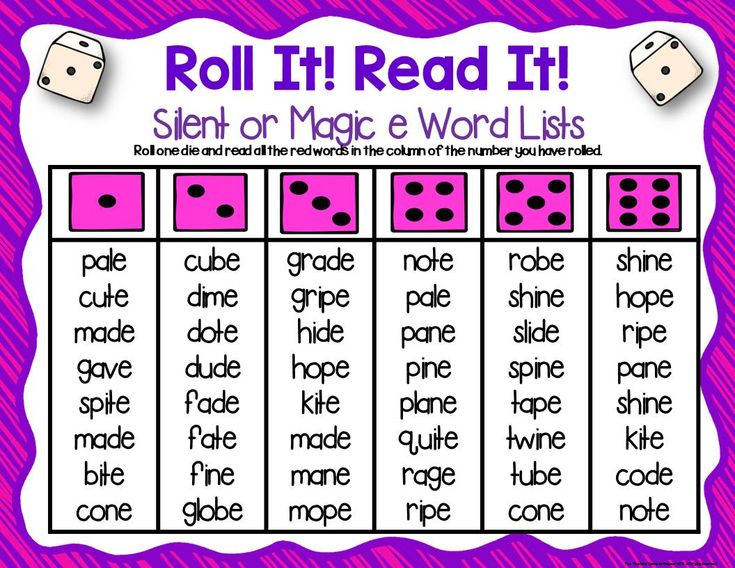 In this case, it is necessary to distinguish between the combination of letters within one syllable and the confluence of these letters at the junction of different syllables, since the reading of the word depends on this.
In this case, it is necessary to distinguish between the combination of letters within one syllable and the confluence of these letters at the junction of different syllables, since the reading of the word depends on this.
| AI, AY | [eɪ] |
|
| [ɛə] before r (combinations air and also aer ) |
| |
| AU | [ɔː] |
|
| EA | [iː] |
|
| exceptions: |
| |
| [e] before d , th , lth , sure , sant |
| |
| exception: |
| |
| EAR | [ɪə] in most cases |
|
| [ɛə] |
| |
| [ɜː] ear + consonant |
| |
| EE | [iː] |
|
| [ɪə] combined eer |
| |
| EI, EY | [eɪ] in stressed syllable |
|
| [iː], [i] unstressed syllable or stressed before silent « E » |
| |
| EU, EAU | nine0083 [ju] or [ju:]
| |
| [juə] or [ʊə] combined eur |
| |
| [aɪ] at the end of monosyllabic words or before the ending -s , -d |
| |
| [iː] |
| |
| IO | [jə] or [iə] (mostly together with the consonant n - ion ) |
|
| [ə] or barely pronounced before n after c , g , s , t , sh , ch 9009 |
| |
| OA | [əu] |
|
| [ɔː] before r |
| |
| OE | [əu] |
|
| OI, OY | [ɔɪ] |
|
| OO | [uː] or [u] in a closed syllable |
|
| [ɔː] before r |
| |
| OU | [au] in stressed syllable |
|
| [ə] in an unstressed syllable |
| |
| [ɔː] before ght |
|
Rules for reading consonants
The most common rules when consonants are pronounced differently than they are called in the alphabet. nine0003
| B | is not pronounced in letter combinations mb , bt within one syllable |
|
| C | [k] |
|
| nine0083 [k] in letter combination ck |
| |
| [k] combined ch in words of Greek origin |
| |
| [ʧ] combined ch |
| |
| [ʃ] combined ch in words of French origin |
| |
| [s] before letters e , i , and |
| |
| [ʃ] in combinations - cion , -cial , -cian , -cean , -cient |
| |
| D | is not pronounced in combination nd , less often dn in compound words |
|
| G | [g] |
|
| [g] in some words before e , i , y , except for |
| |
| [ʤ] before e , i , y |
| |
| is not pronounced in combinations gn , gh |
| |
| [f] as an exception in combination gh , often at the end of words |
| |
| H | is not pronounced in some words, in combination gh |
|
| K | is not pronounced in combination with kn |
|
| L | is not pronounced in combinations -alf , -alk , - alm , -ould (within one syllable) |
|
| exception: |
| |
| N | is not pronounced in combination mn in one syllable |
|
| P | [f] combined ph |
|
| p is not pronounced in conjunction with ps at the beginning of word |
| |
| Q | [kw] combined qu |
|
| [k] combined que at the end of a word in words of French origin | nine0083||
| R | British English r not pronounced at the end of a word, before a silent e or other consonant |
|
| S | [z] in position between vowels |
|
| [ʃ] combined sh |
| |
| [ʃ] in combinations sure , sion after consonants |
| |
| [ʒ] in combinations sure , sion after vowels |
| |
| T | is not readable at the end of some words of French origin |
|
| [ð] in combination th between or before vowels (mostly in pronouns) |
| |
| [θ] in combination th after consonants or at the end of a word, at the beginning of other words |
| |
| [ʃ] in combinations tion , tial , tient after vowels |
| |
| [ʧ] combined stion |
| |
| [ʧ] in combinations ture , tural , tury at the end of a word |
| |
| W | is not pronounced in combination with wr |
|
| is not pronounced at the end of words in combinations aw , ow , ew |
| |
| [h] combined who |
| |
| Y | [j] if y is used as a consonant at the beginning of a syllable before a vowel |
|
| Z | [ʒ] before ure (rare) |
|
E, U, B, C, D
My friend, who is fluent in German, hates English for its reading rules, and especially for 'silent letters' - silent letters that are written but not read. “It’s simple in German,” she says. “As it is written, so it is pronounced. No surprises."
Indeed, in English there are ten exceptions to one rule, and many English learners note that one of the most difficult aspects is learning to read and pronounce words correctly. nine0003
Over the 10 years of teaching, I have repeatedly encountered a situation where the incorrect pronunciation of individual words with silent letters turned into a fossilized error for many - a habit error that was not explained and corrected in time, and after repeated repetitions it firmly established itself in speech.
Examples of typical fossilized errors with silent letters: the pronunciation of the letter H in the word hour, the letter B in the words comb, climb and doubt, the letter L in the word calm and many others.
What is remarkable: silent letters are often found in the pronunciation of short and simple-looking words. Most learners don't bother too much, don't open the dictionary and check the transcription and, as a result, remember the word incorrectly.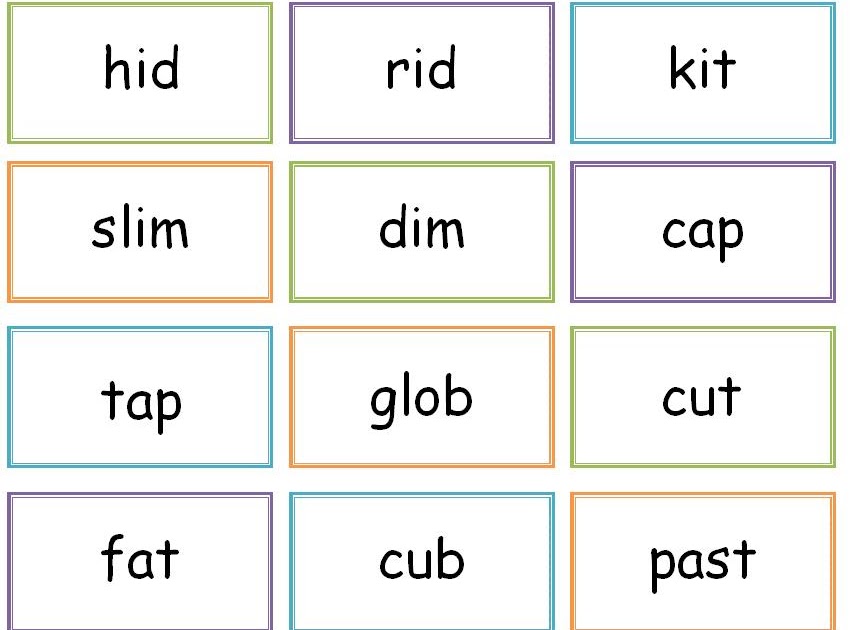 nine0003
nine0003
Silent vowels (Silent E, Silent U) and silent consonants (Silent B, Silent C, Silent D, Silent H, Silent G, Silent L, Silent N, Silent P, Silent S, Silent T, Silent W.
I understand my friend who suffers from silent letters. There is no single pronunciation rule for everyone: you need to memorize combinations and individual exception words. For this reason, the behavior of silent letters in English words, at first glance, may seem unpredictable. But, if you look closely and understand, you will notice that each has its own patterns and combinations that make them dumb. In this lesson, I want to tell you more about silent letters and the principles of their pronunciation. nine0003
A word of caution before we start: in my pronunciation lessons, I don't delve into the mysterious depths of theoretical phonetics, because I don't think it's the most necessary material for filling the head of an ordinary person who wants to speak English.
I am not trying to explain to you the mysteries of articulation and paint the positions of your teeth, lips and tongues - this is best learned through audio, video or classes with teachers.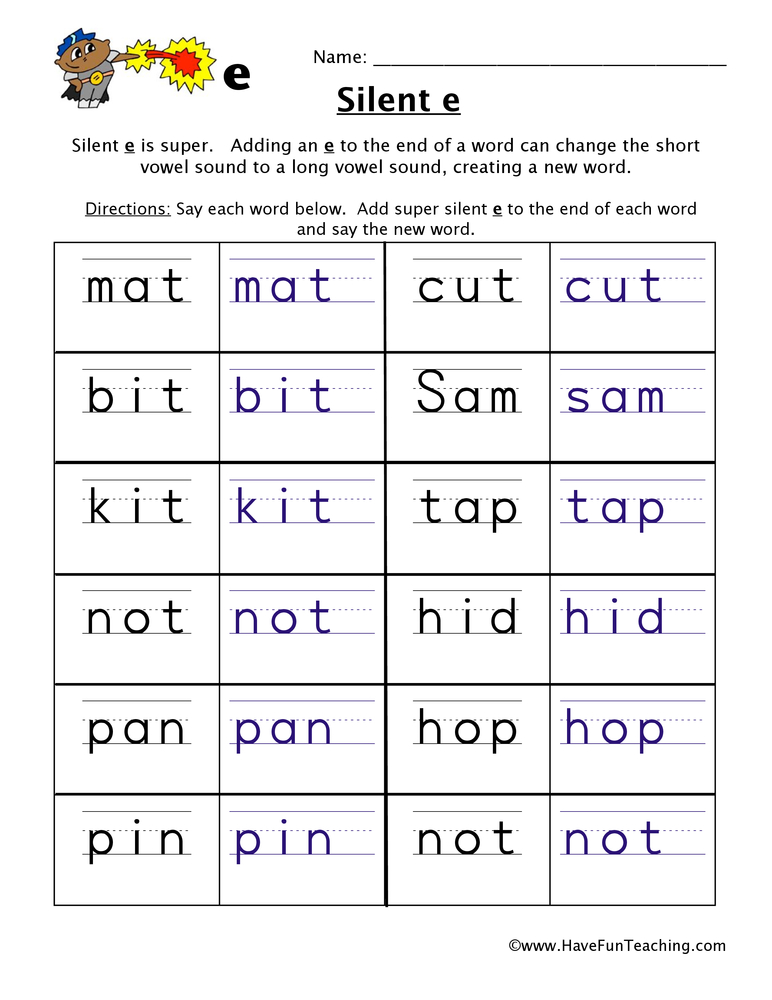 In the ENGINFORM blog, I convey things in a simple, maximally non-theoretical language for people without a philological education who master English on their own. nine0003
In the ENGINFORM blog, I convey things in a simple, maximally non-theoretical language for people without a philological education who master English on their own. nine0003
Let's move on to "silent letters".
Silent vowels
Silent E
The letter E was not always silent. Sources claim that it lost its sound in the 11th century. In modern English, we almost never read the E at the end of a word. Many verbs, nouns, adjectives end in silent E:
- take /teɪk/
- cake /keɪk/
- little /ˈlɪt(ə)l/
- late /leit/ nine0025 life /laif/
- more /mo:r/
- blue /blu:/
This list of examples, as you understand, can be continued indefinitely, because there are really a lot of words with E at the end.
But one should not assume that if the letter is not pronounced, then it is absolutely meaningless. E at the end of a word serves to make the preceding syllable open, but loses its sound itself.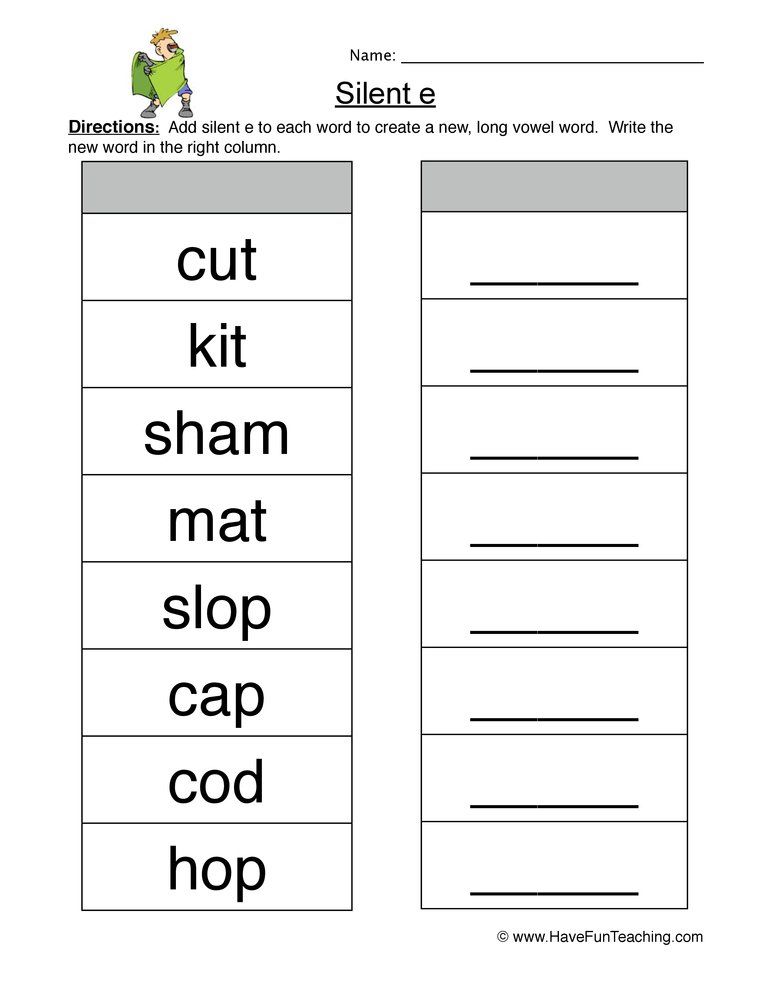 Compare pronunciation:
Compare pronunciation:
- hat /hat/ – hate /heɪt/
- tap /tap/ -tape /teɪp/
- at /at/ –ate /eɪt/
- mat /mat/ – mate /meɪt/
- sit /sɪt/ – site /sʌɪt/
If there were no E at the end, then, according to the rules of reading the English language, the words would be read absolutely differently! This is rarely explained in textbooks, but most of us automatically understand the principle from childhood: E at the end of English words is not pronounced.
In English there are a few foreign words you need to remember because the E is at the end of these words:
Resumé /'rezjuːmeɪ/ – summary. The word is usually pronounced with a French accent. By the way, in the blog you can find out what is the difference between Resumé and Curriculum Vitae.
Forte /fɔːteɪ/ – loud. An Italian musical term that has another meaning: ‘the strong side in a person’.
Remember that when forming the plural form (when we add the ending S), when forming the third person singular in Present Simple (ending S), the "ing" form and the second and third forms of regular verbs (ending ED) silent E at the end of word falls out .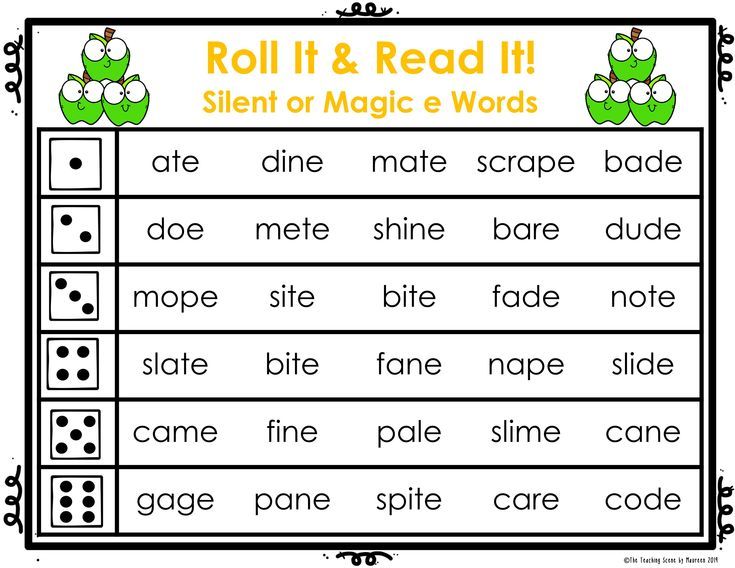 I recommend that you re-read the articles later to brush up on the rules for forming different forms and adding endings.
I recommend that you re-read the articles later to brush up on the rules for forming different forms and adding endings.
Silent U
The second vowel that can lose its sound in some words is the letter U. It is not pronounced when it comes after G before a vowel:
- guess /ɡɛs/ – guess, guess
- guidance /ˈɡʌɪd(ə)ns/ - guidance
- guitar /ɡɪˈtɑː/ - guitar nine0025 guest /ɡɛst/ - guest
- guild /ɡɪld/ – guild, union
- guard /ɡɑːd/ - guard, guard
Silent consonants
Silent B
Many people pronounce the B sound in combination with MB at the end of a word. Please remember that in this combination only M is read, and B is a dumb letter:
- climb / klaim / - climb
- limb /lim/ - limb
- bomb /bom/ - bomb nine0025 comb /koum/ - comb
- tomb /tu:m/ - headstone, tomb
- numb /nəm/ - dumb
- plumber /'pləmər/ – plumber
- thumb /θəm/ - thumb
The letter B is also not readable in the combination BT.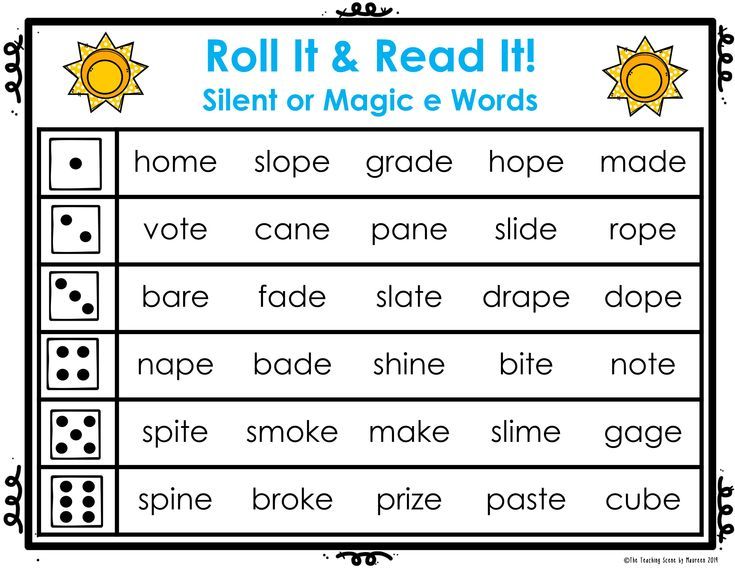 There are much fewer words with this combination:
There are much fewer words with this combination:
- debt / det / - debt
- doubt /daut/
- subtle /'sətl/ – implicit
Remember that in derivative words, silent letters also most often retain their “dumbness”:
- subtleness /ˈsʌt(ə)lnəs/ – subtlety
- undoubtedly /ʌnˈdaʊtɪdli/ – undoubtedly
- bombing /ˈbɒmɪŋ/ - to bomb
Silent C
The letter C is not pronounced in the SC combination, although one would like to pronounce it like /k/ in the word muscle!
- muscle /ˈmʌs(ə)l/ - muscle, muscle
- scissors /ˈsɪzəz/ – scissors
- ascent /əˈsɛnt/ – rise, promotion
- miscellaneous /ˌmɪsəˈleɪnɪəs/ – different, heterogeneous
- fascinate /ˈfasɪneɪt/ – to captivate, arouse interest
- scenario /sɪˈnɑːrɪəʊ/ - scenario, action plan
There are exceptions to this rule - these are words of Greek origin, medical or scientific terms in which C reads:
- sclera /ˈsklɪərə/ - sclera
- sclerosis /skləˈrəʊsɪs/ – sclerosis
- skeptic /ˈskɛptɪk/ – skeptic
C is also not pronounced before the letter Q:
- acquaintance /əˈkweɪnt(ə)ns/
- acquiesce /ˌakwɪˈɛs/ – reluctant to agree
- acquit /əˈkwɪt/ – to justify
Mark yourself a few exception words where C does not sound (and at first glance - ordinary adequate words!):
- Connecticut /kə'netikət/ - Connecticut
- to indict /in'dait/
- indictment /in'daitmənt/ - indictment
- victuals /'vitlz/ - provisions, provisions
- to victual /'vitl/
Silent D:
Every language tends to simplify.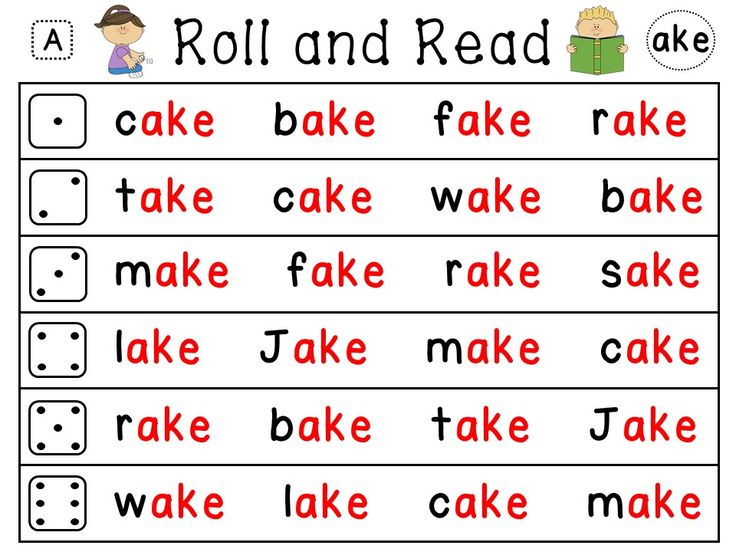 It is difficult to pronounce several consonants in a row, so D is not pronounced in many words before other consonants:
It is difficult to pronounce several consonants in a row, so D is not pronounced in many words before other consonants:
- handkerchief /ˈhaŋkətʃɪf/ – handkerchief
- Wednesday /ˈwɛnzdeɪ/ - Wednesday
- sandwich /ˈsan(d)wɪtʃ/ – sandwich
- handsome /ˈhans(ə)m/ – handsome
By the way, in my blog I talked in more detail about the use of the word handsome and its synonyms (beautiful, nice, good-looking and others). You may find this information useful.
If you come across a combination of DG in a word - do not break your tongue: D does not sound, and the diphthong [ʤ] is transmitted by the letter G:
- ledge /lɛdʒ/ - protrusion
- dodge /dɒdʒ/ - dodge, dodge
- grudge /ɡrʌdʒ/ – resentment, malice
- hedge /hɛdʒ/ - hedge
It is very possible that among the examples in this article you have found words that you used to pronounce incorrectly.
And you ask me what to do with them?
Tip number one for correct pronunciation - check the transcription of the word, even if the word is small and simple.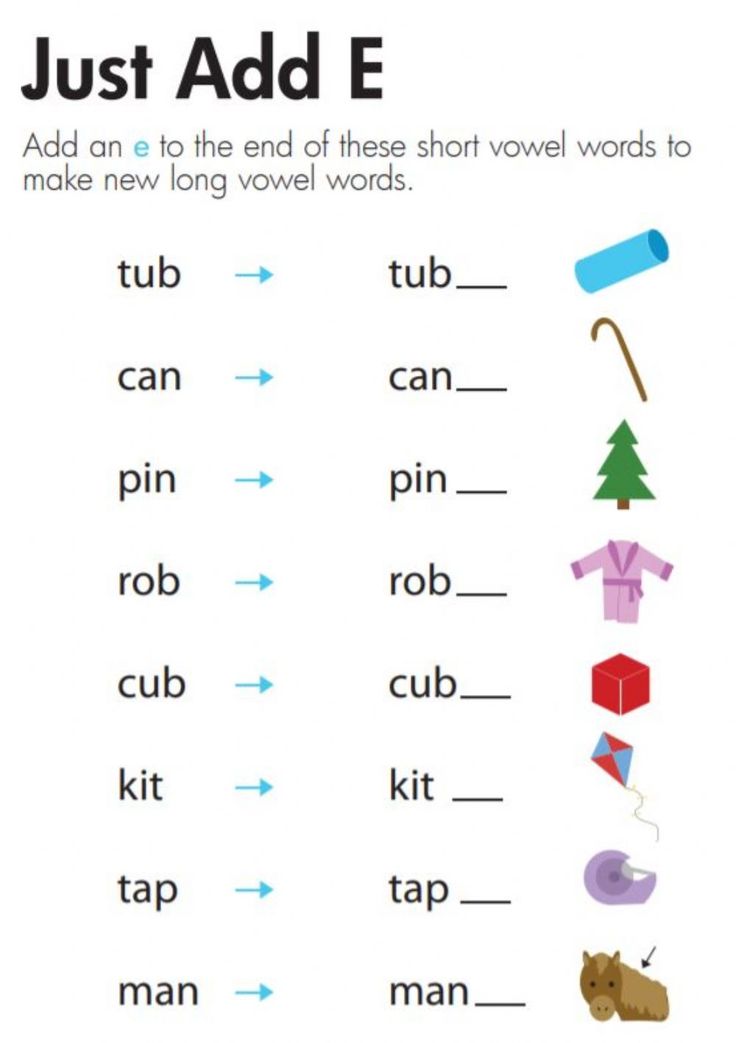 English is 50% made up of small and harmless-looking words, and by reading this material, you have seen that they are not so simple. Keep a selection of the best online dictionaries, you will definitely need it to clarify how the word you need sounds. nine0003
English is 50% made up of small and harmless-looking words, and by reading this material, you have seen that they are not so simple. Keep a selection of the best online dictionaries, you will definitely need it to clarify how the word you need sounds. nine0003
Tip number two : Listen and speak out! This is especially true for those of you who learn English primarily from textbooks and texts. Due to this "visual" study of words, you remember only how the word is spelled, and automatically pronounce all letters, even silent ones. Hear how words you know sound in songs, movies, how your teacher and native speakers pronounce them. If you notice any inconsistencies, this is an occasion to turn to the first advice or ask a specialist a question. nine0003
Third tip : some consonants can be "half" mute (that's not a special term, that's what I call them). Let me explain with an example: if you look up the transcription of the word often in the dictionary, you will see that the sound t is indicated in brackets /ˈɒf(t)ən/.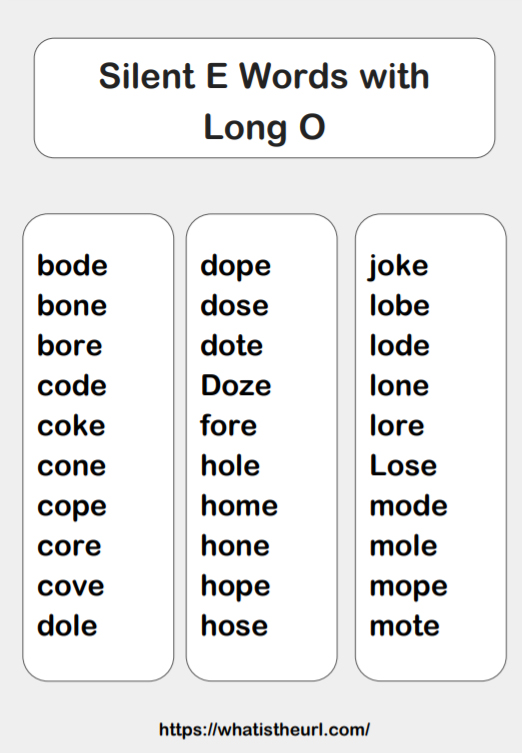

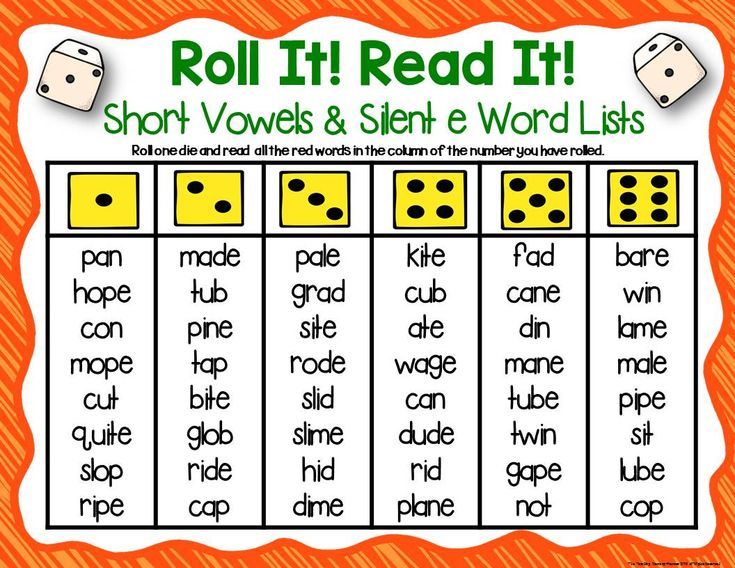 rəl]
rəl] 

